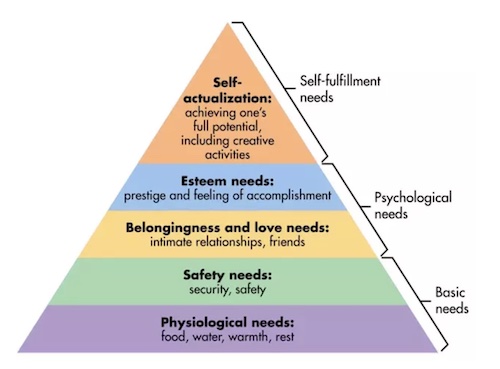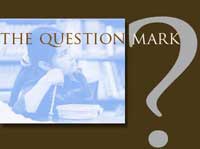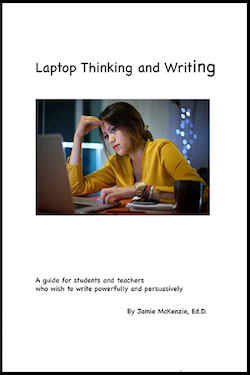| Research Cycle |
Order Jamie's books online with Paypal or a credit card
|
|
|
|
|
 Play on YouTube What's it all about?by Jamie McKenzie(about author) |
|
High on the list of essential questions we ask during our lives is “What's it all about?" Schools should help students to wrestle with such questions early in life so one day they may be able to look back with pride at lives well lived. How will I make my mark? Will I do good? Will I do well? In the movie, Alfie wasn’t thinking much about his legacy, but this article will focus upon it. It turns out we’re here for a very short time even if we live until we’re 77 or 87. The years go by all too swiftly and we might ask at the end "Did we leave our mark?" Did we do any good? Did our life matter at all? It pays to ask much earlier as one starts out upon life’s path. Will we choose as Frost suggests “the road less traveled?” in The Road Not Taken, or will we act out a more restrained and conventional plan? The love song of J. Alfred Prufrock, a poem by T. S. Eliot, asks similar questions. Do I dareMaslow’s "Hierarchy of needs" provides a way to think about this search for meaning and purpose in life.  Source: McLeod, S. A. (2022, April 04). Maslow's hierarchy of needs. Simply Psychology. www.simplypsychology.org/maslow.html Those needs are physiological needs, safety needs, love and belonging needs, esteem needs, and self-actualization needs. For many people, struggling to survive -- to feed oneself, pay one's bills and avoid death by overdose or domestic violence -- may be all that one can manage. They are stuck at the two bottom levels of his hierarchy. The very idea of reaching Maslow's top level -- self-actualization -- may seem far-fetched and whimsical, the province of affluent and well educated citizens. Dolly Parton's song "Nine to five" captures this reality well: Workin' 9 to 5  © iStock The bumpy road to self-actualizationMaslow's study of individuals he considered self-actualizers led him to create a list of characteristics that is quite daunting. He is said to have believed as few as two percent of the population might ever reach this level.I prefer Catford and Ray's model -- "The Path of the Everyday Hero." In simplest terms, an everyday hero is a person who employs creative powers and energies to try to make life better for the larger community. During 9/11 and COVID, we certainly saw thousands of everyday heroes come into focus, as extraordinary events inspired many to act heroically, but even during less stressful times, daily acts of kindness mean a great deal and whether it be a teacher, a nurse, a first responder or a good neighbor, these are people who are doing good in ways that add up to being heroic. You can learn more about the hero's journey in this FNO article from 1992 -- "Taming the Minotaur." In order to be successful during the six stages of the hero's journey, Catford and Ray maintain that a creative hero needs the following four "magic" tools: 1) Having faith in your creativity Because the journey will almost necessarily plunge you into darkness at various times, faith becomes essential. During those long time periods answers and solutions prove evasive, each person must believe that perseverance will pay off, that clarity will come, that some kind of answer will arise out of the confusion and darkness. A lack of faith will translate into a lack of courage and a tendency to play it safe, keeping close to home and sticking with what is familiar and reassuring. 2) Suspending negative judgment Because negative judgments virtually shut down creative production, each person will drive away doubt and criticism, especially during the exploration and idea generation stages. The goal is to open one's mind to possibilities never before considered. If you find a judge perched upon your shoulder critiquing every new thought, banish the boring gremlin and invite your clown to takes its place. This is a time for playful consideration of intriguing futures. 3) Practicing precise observation A visit to unfamiliar territory places a premium on careful observation. One cannot rely upon previous experience and knowledge for guidance. The creative hero slows down activity, emphasizes reflection and seeks understanding. 4) Asking penetrating questions Precise observation relies upon penetrating questions, for good questions are the tools we use to develop insight when encountering new and strange environments or experiences. Questions bring us out of the darkness and into the light. They probe negative space and help us to make meaning. You can learn more about the stages of the hero's journey in this FNO article from 1992 -- "Taming the Minotaur" We need students to understand that they need not write a novel, compose a symphony or respond to an emergency to make a mark and lead a good life. There are thousands of ways to live well and act heroically, many of which will occur far from the lens of a news camera. |
FNO Press is applying for formal copyright registration for articles.
Unauthorized abridgements are illegal.


